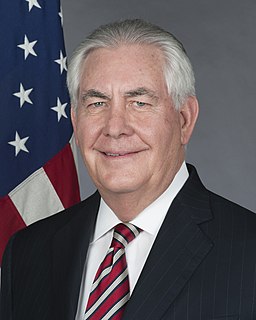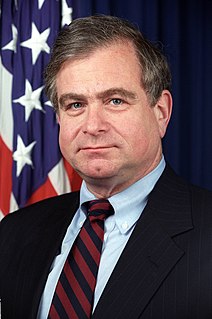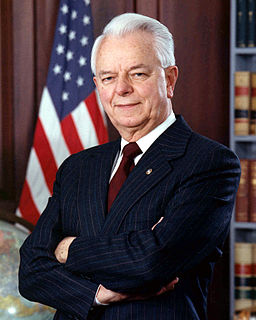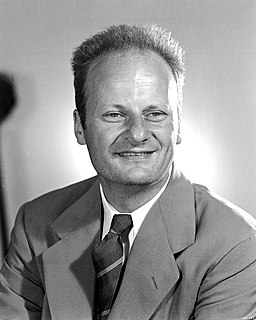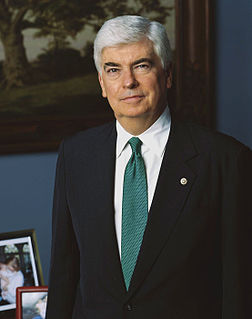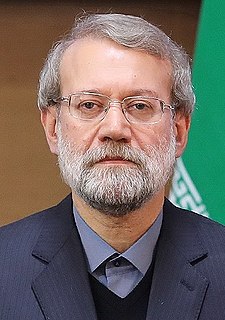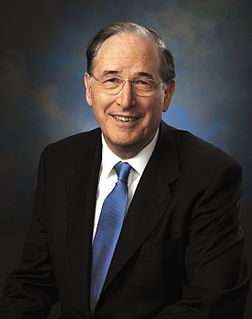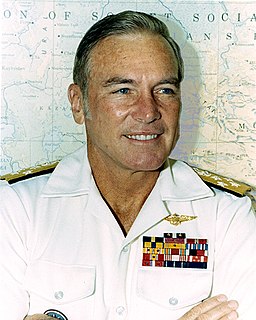Top 1200 Chemical Weapons Quotes & Sayings
Explore popular Chemical Weapons quotes.
Last updated on December 22, 2024.
It has been almost three years since U.S. President Barack Obama pipsqueaked on his chemical-weapons 'red line' in Syria and joined with Russian strongman Vladimir Putin in the pantomime that resulted in the Sept. 27, 2013 U.N. Security Council Resolution 2118, which called on Assad to surrender his chemical weapons stockpile.
I think the President Donald Trump was quite clear in his statement that he made to the American people that Syria's continued violations of U.N. resolutions and previous agreements that Syria had entered into regarding the Chemical Weapons Accord would no longer be tolerated. I think we have stood by and watched multiple weapon - chemical weapons attacks by the Syrian regime under the leadership of Bashar al-Assad.
A convention on the comprehensive ban of nuclear weapons should be negotiated. Since biological and chemical weapons have been prohibited, there is no reason why nuclear weapons, which are more destructive, should not be comprehensively banned and thoroughly destroyed. All it takes to reach this objective is strong political will.
I would have thought that if you're going to try to punish the Syrians and prevent them from using chemical weapons again, the thing to do is a one-time strike. Maybe a cruise missile strike at one or two of their air bases just so they know what they're going to gain from using chemical weapons on the battlefield.
If you allow someone like Saddam Hussein to get nuclear weapons, ballistic missiles, chemical weapons, biological weapons, how many people is he going to kill with such weapons? He's already demonstrated a willingness to use these weapons. He poison-gassed his own people. He used poison gas and other weapons of mass destruction against his neighbors. This man has no compunction about killing lots and lots of people. So this is a way to save lives and to save the stability and peace of a region of the world that is important to the peace and security of the entire world.
If you want to find weapons of destruction, you can find them all over the place. Take, say, Israel. There is a very great concern right now about proliferation of nuclear weapons, as there should be. Israel has a couple of hundred nuclear weapons and also chemical and biological weapons. This stockpile is not only a threat in itself but encourages others to proliferate in reaction and in self-defense. Is anybody saying anything about this?
Our soldiers in another area were attacked chemically. Our soldiers - they went to the hospital as casualties because of chemical weapons, but in the area where they said the government used chemical weapons, we only had video and we only have pictures and allegations. We're not there ; our forces, our police, our institutions don't exist there. How can you talk about what happened if you don't have evidence ?
The last UN weapons inspectors left Iraq in October of 1998. We are confident that Saddam Hussein retains some stockpiles of chemical and biological weapons, and that he has since embarked on a crash course to build up his chemical and biological warfare capabilities. Intelligence reports indicate that he is seeking nuclear weapons.
Israel produces and stores chemical weapons. So therefore the US will prevent the Chemical Weapons Convention from being imposed on the Middle East. But it's necessary to evade this by misrepresenting the convention, and I think maybe 100 percent of the media, or close to it, go along. But that's a critical issue. Actually, Syria's chemical weapons were developed largely as a deterrent to Israeli nuclear weapons. Also, not mentioned.
I believe the proliferation of weapons of mass destruction presents the greatest threat that the world has ever known. We are finding more and more countries who are acquiring technology - not only missile technology - and are developing chemical weapons and biological weapons capabilities to be used in theater and also on a long range basis. So I think that is perhaps the greatest threat that any of us will face in the coming years.
The Soviet Union has long been proposing to outlaw chemical weapons, to remove them from the arsenals of states. We are prepared for resolution of this problem either on a global basis or piece by piece. As one of the first steps the USSR and the other socialist countries proposed in January 1984 that agreement be reached on ridding Europe of all types of chemical weapons.
We do know that the Iraqi regime has chemical and biological weapons. His regime has amassed large, clandestine stockpiles of chemical weapons - including VX, sarin, cyclosarin and mustard gas. His regime has amassed large, clandestine stockpiles of biological weapons—including anthrax and botulism toxin, and possibly smallpox.
My goal is to maintain the international norm on banning chemical weapons. I want that enforcement to be real. I want it to be serious. I want people to understand that gassing innocent people, delivering chemical weapons against children is not something we do. It's prohibited in active wars between countries. We certainly don't do it against kids. And we've got to stand up for that principle.
What is the only provocation that could bring about the use of nuclear weapons? Nuclear weapons. What is the priority target for nuclear weapons? Nuclear weapons. What is the only established defense against nuclear weapons? Nuclear weapons. How do we prevent the use of nuclear weapons? By threatening to use nuclear weapons. And we can't get rid of nuclear weapons, because of nuclear weapons. The intransigence, it seems, is a function of the weapons themselves.
I come to this debate, Mr. Speaker, as one at the end of 10 years in office on the Permanent Select Committee on Intelligence, where stopping the proliferation of weapons of mass destruction was one of my top priorities. I applaud the President on focusing on this issue and on taking the lead to disarm Saddam Hussein... Others have talked about this threat that is posed by Saddam Hussein. Yes, he has chemical weapons, he has biological weapons, he is trying to get nuclear weapons.
There is no question that Iraq possesses biological and chemical weapons and that he [Saddam Hussein] seeks to acquire additional weapons of mass destruction, including nuclear weapons. That is not in debate. I also agree with President Bush that Saddam Hussein is a threat to peace and must be disarmed, to quote President Bush directly.
If Saddam's regime and survival are threatened [by invasion], he will have nothing to lose, and may use everything at his disposal... If weapons of mass destruction land on Israeli soil, killing innocent civilians, the experts I have consulted believe Israel will retaliate, and possibly with nuclear weapons... Nor can we rule out the possibility that Saddam would assault American forces with chemical or biological weapons.
Repeatedly and frankly we have announced that in Irans national security doctrine there is no room for atomic and chemical weapons as we consider them against Islamic laws. Irans Supreme Leader (Ayatollah Seyyed Ali Khamenei) in this connection had issued a decree that mass destruction weapons are prohibited by the Muslim religion. [. . .] Therefore we support the idea of a Middle East free from weapons of mass destruction[.]
And, as a consequence of the pressure that we've applied over the last couple of weeks, we have Syria -- for the first time -- acknowledging that it has chemical weapons, agreeing to join the convention that prohibits the use of chemical weapons, and the Russians -- their primary sponsors -- saying that they will push Syria to get all of their chemical weapons out. The distance that we've traveled over these couple of weeks is remarkable.
At another location, we found barrels of chemical material that was intended for use as biochemical weapons. Everyone talks about there being no weapons of mass destruction in Iraq, but they seem to be referring to completed nuclear bombs, not the many deadly chemical weapons or precursors that Saddam had stockpiled.
It [the intelligence service] concludes that Iraq has chemical and biological weapons, that Saddam has continued to produce them, that he has existing and active military plans for the use of chemical and biological weapons, which could be activated within 45 minutes, including against his own Shia population; and that he is actively trying to acquire nuclear weapons capability.
It was not the United States who invaded Kuwait; it was Iraq. It was not the United States that went to war with Iran; it was Iraq. It was not the United States that fired chemical weapons at Iran; it was Iraq. And it was not the United States that murdered innocent Iraqi citizens with chemical weapons; it was Iraq.
Saddam's existing biological and chemical weapons capabilities pose a very real threat to America, now. Saddam has used chemical weapons before, both against Iraq's enemies and against his own people. He is working to develop delivery systems like missiles and unmanned aerial vehicles that could bring these deadly weapons against U.S. forces and U.S. facilities in the Middle East.
We achieved a deal with the Russians that didn't wind up in two days of strikes that would have sent a, quote, "message," but would not have removed the weapons. We struck a deal to get all of the declared weapons out of Syria. Never before in a conflict has that ever happened, that during the conflict weapons of mass destruction are taken out of the zone of conflict. And thank God we did that, because if we hadn't done that, today ISIL would have those chemical weapons in large parts of the country.
Luckily for [Barack] Obama, the Russians came along and rescued him with this proposal [to confiscate Assad's chemical weapons] which he quickly accepted - it was a way out of the embarrassment of facing likely defeat. They still have the option of bombing if they want to. And incidentally, to add one comment about this, you'll notice that this would be a very good moment to institute a call for imposing the Chemical Weapons Convention on the Middle East.
This would be a very good moment to institute a call for imposing the Chemical Weapons Convention on the Middle East. The actual Chemical Weapons Convention. Not the version that [Barack] Obama presented in his address to the nation and that media commentators repeat. What he said is that the convention bars the use of chemical weapons. He knows better. And so do the commentators. The Chemical Weapons Convention calls for banning the production, storage and use of chemical weapons, not just the use. So why omit production and storage?
Land mines, torture equipment, cluster bombs, chemical weapons are weapons designed to inflict pain and death on human beings. Most victims are civilians, women and children. How can arms manufacturers, weapons designers, plant managers, politicians, who have families of their own whom they love, be so insensitive when it comes to the suffering of other human beings?



